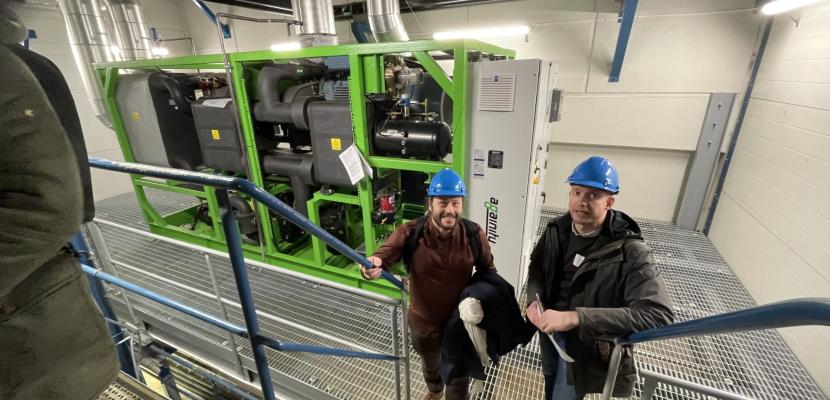
Gullberna ORC

About this good practice
Affärsverken is a company owned by the municipality of Karlskrona. They manage power, heat, water, sewage, sanitation, and fibre broadband.
Affärsverken put lots of effort in engaging citizens in the energy transition. One example is their large solar PV-plant located on a former dump site. Individuals and companies can buy shares in the farm and promote local renewable energy.
An important part in getting public acceptance for their operation is to be sustainable and their district heating is 100% fossil free (biobased). Another thing that needs to be understood and accepted by the public is the need for plannable electricity production. Energy can be stored, and users can be flexible, but electricity also must be produced when needed most (cold winter days). Affärsverken has a larger CHP plant suppling heat and power to most of the buildings in the city centre. In the suburb Gullberna there is a smaller district heating plant with a boiler of 10 MW built in 1990.
A few years ago, technology was not mature for small scale power production. After a succesfull pilot in smaller scale was installed in Bräkne-Hoby, Affärsverken decided to complete Gullberna with an ORC. An ORC takes heat from the main boiler and produce electricity via a turbine. The boiler is producing most cold winter days and electricity is then also produced when the need is highest. In Gullberna advanced filters are used, and a precondition for public acceptance is a high degree of flue gas cleaning.
Resources needed
The practice needed some minor modifications in the existing plant. A success factor was that the plant had suitable space for the ORC.
The ORC was then a turn key delivery. Total cost was. around 7 M€.
Evidence of success
The Gullberna ORC is producing 1,3 GWh electricity yearly. The electricity is mainly used internal the power plant and the excess is distributed to the local grid.
The power plant is now more independent on external supply of electricity.
Potential for learning or transfer
The supplier, Againity, estimates that more than 2000 heat plants (out of 3900 in Europe) can use this technology to produce electricity parallell to heat.
